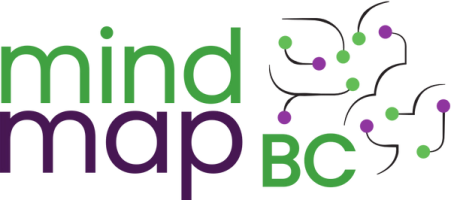Stephanie Lofquist Counselling
Summary
Addictions counselling
Individual counselling
Sliding Scale Available
LGBQ+ Affirming
Trans Affirming
 Wheelchair Accessible
Wheelchair AccessibleYouth
Seniors
Online resource
Remote services
I offer individual counselling and counselling for parents and caregivers online and by phone.
I having training in somatically-oriented therapy and trauma counselling supporting clients to bring curiousity and compassion to the personal experiences, memories, sensations, emotions and feelings they carry within. Paying attention to our inner experiences with compassion can ease responses like anxiety, depression and the effects of trauma and allow us to access to the deeper levels of awareness, wisdom, and self-guidance that reside within each of us.
I also have training in Emotionally-Focused Family Therapy (EFFT) and support parents and caregivers by building on their skills and knowledge and processing emotion blocks that come up when caring for loved ones. EFFT is rooted in the belief of the healing power of families and their capacity to provide love and support.
Want to learn more about this service’s work with Two-Spirit, trans, LGBQ+ people?
We invite all service providers listed on MindMapBC to answer the following questions. These questions were developed in collaboration with community members, researchers, and mental health and other service providers. They're intended to help us understand what a service provider or organization is doing to affirm and support sexual and gender diverse service users.
See below for responses for this listing.
Want to learn more about our screening questions and filters?
Do you collect and use preferred names (rather than legal names) for all communications?
—Yes
Are the forms used in your practice inclusive of various sexual orientations and gender identities (e.g., opportunities to fill in pronouns, etc.)?
—Yes
Are you and your colleagues aware of what specific barriers may exist for trans individuals accessing your services?
—Yes
Do you offer Indigenous 2S/LGBTQ+ specific resources, for example Indigenous Elders or Knowledge Keepers?
—No
Are you and your colleagues comfortable asking relevant questions about gender identity and sexual orientation?
—Yes
Are you and your colleagues aware of what specific barriers may exist for LGBQ individuals accessing your services?
—Yes
Do you and your colleagues ask clients about pronouns and use them appropriately?
—Yes
Do you and your colleagues have experience working with people who identify as living with a disability or chronic illness? Please tell us more about your experience and any training you have received. (For example, do you have experience working with people with diverse physical or cognitive abilities, or those who are living with specific chronic illness(es)?)
—Yes, to some extent
Can you and your colleagues distinguish gender/identity dysphoria/distress from mental health conditions?
—Yes
Are you and your colleagues aware of what specific barriers may exist for Two-Spirit, queer, or trans Indigenous individuals accessing your services?
—Yes, to some extent
Does your practice have gender-neutral washrooms?
—Not applicable (please explain why this is not applicable)
Are there clear anti-discrimination policies that include gender identity, gender expression, and sexual orientation in your organization or practice?
—Yes
Are all individuals involved in service provision actively engaged in decolonizing their practices and/or organization? If yes, please type below what actions you and/or your organization are taking.
—Yes
Trainings and learning.
Are all individuals involved in service provision actively engaged in anti-racist practices, policies, and systems in their care model?
—Yes
Last updated: February 25, 2022
Request changes —

